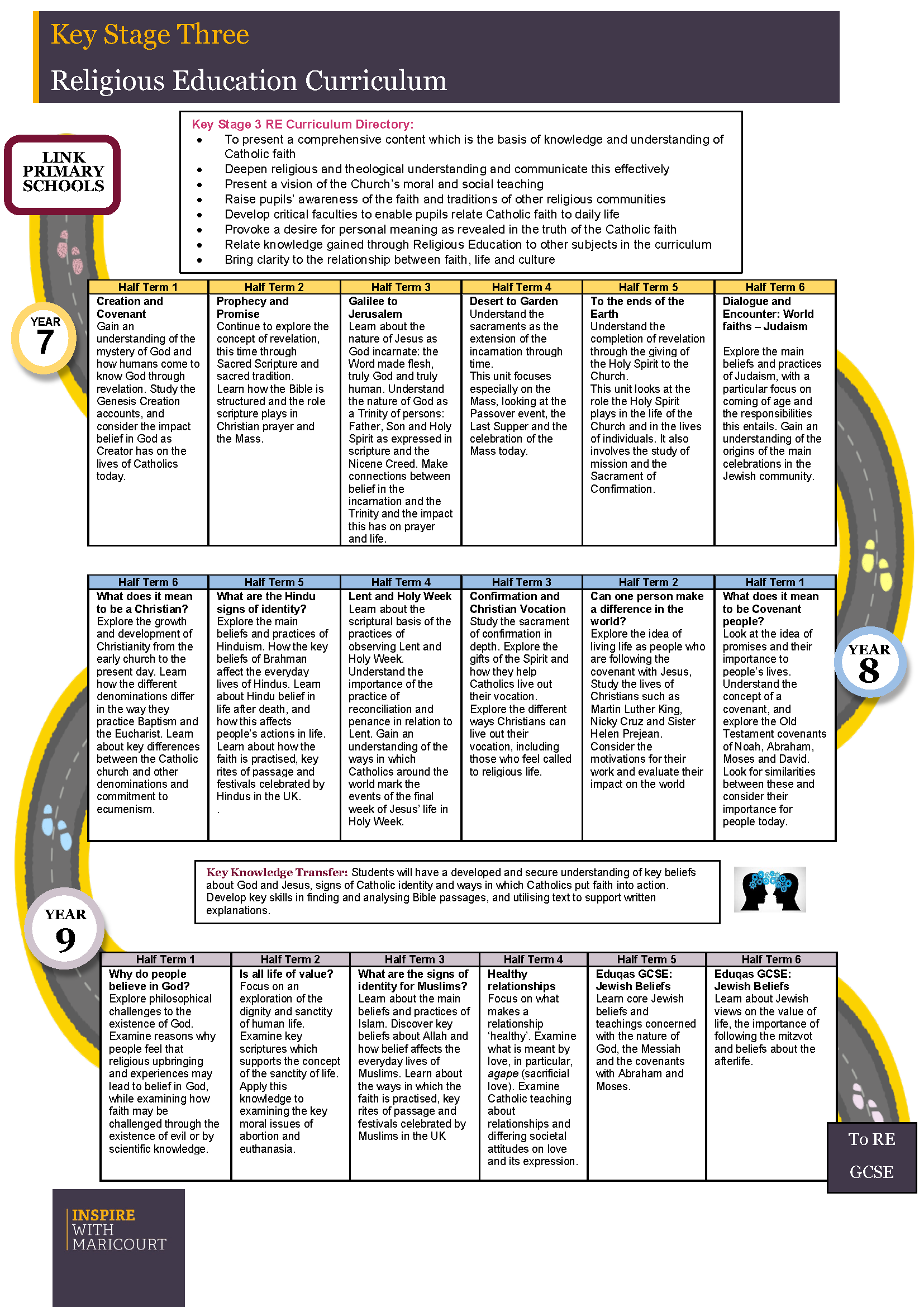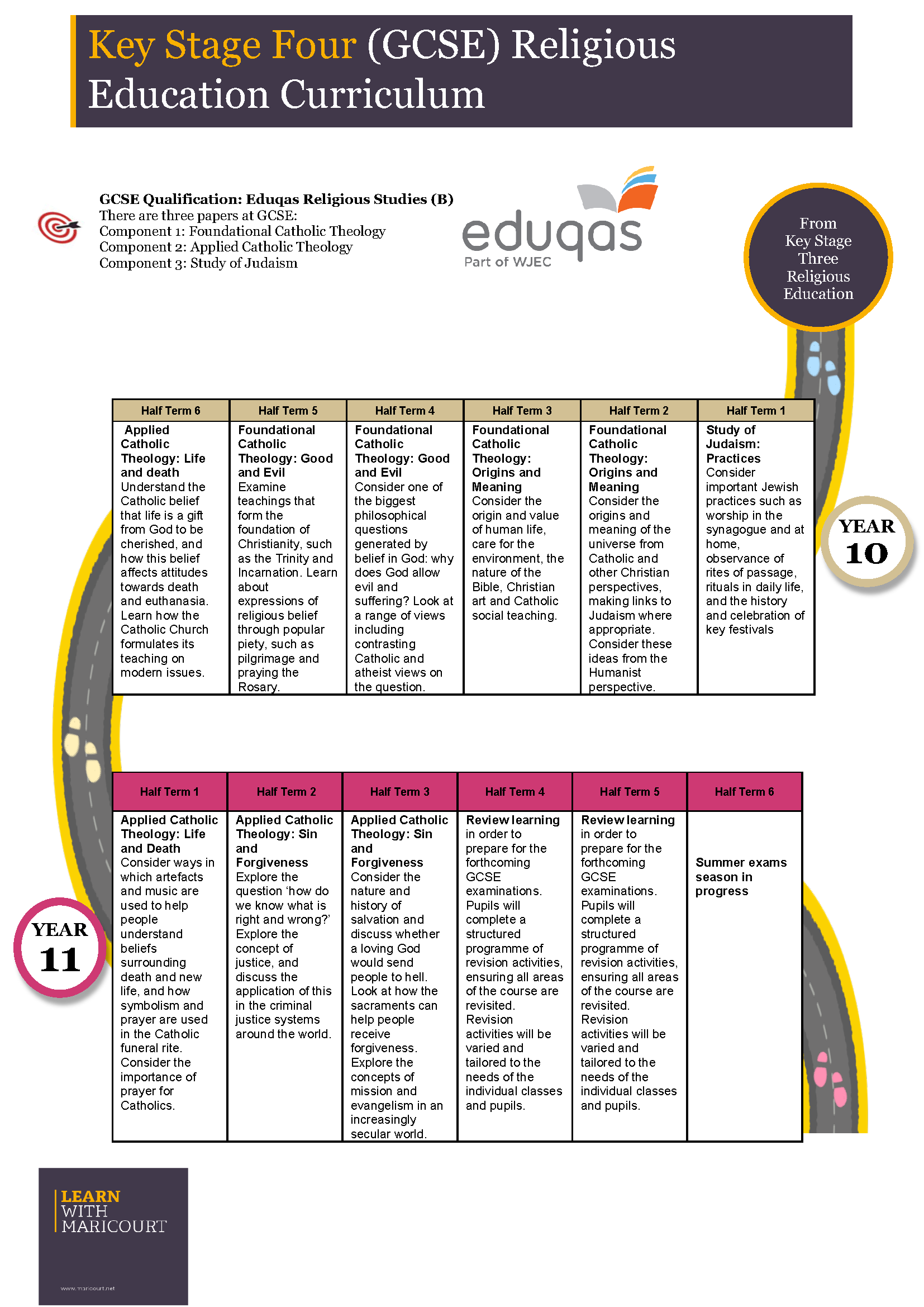Religious Education
Curriculum Intent
“We should be shining lamps, giving light to all around us” – Catherine McAuley
All pupils have the right to receive an overall education which will enable them, in the light of the faith of the Church, to engage with the deepest questions of life. It is our intent for the Religious Education curriculum to engage, inspire, challenge and encourage pupils, equipping them with the knowledge and skills to answer challenging questions. Religious Education contributes significantly to the Catholic character of the school and enables pupils to ask deep and often searching questions about their own faith and belief, and the beliefs, faiths and opinions of others regarding pertinent contemporary moral issues. At Maricourt Catholic High School we are committed to helping our young people understand their gifts and their calling in life, and we work closely with our school chaplain to walk beside our pupils through their journey in faith.
Learning is embedded through the development of knowledge and skills over time. In KS3, the curriculum breadth supports learners’ knowledge and understanding of religions religious beliefs. Half-termly assessments are given at the end of each topic. Throughout each key stage, the learning deepens their understanding of Catholic Christianity and students are given opportunities to identify with teachings and see the impact these may have on their own lives. Pupils have access to key terminology and sources of wisdom. Regular extended writing allows pupils to develop their language and vocabulary. In Key Stage 4 there is scope to develop their ability to construct well-argued, well-informed, balanced and structured written arguments, demonstrating their depth and breadth of understanding of the subject. Students are given opportunities in lessons and through working with our chaplain to actively reflect, investigate and make meaning of relationships, the world and God.
By the end of Key Stage 3 pupils will be familiar with the origins and history of Christianity as well as some of the other major world religions. Pupils will be able to describe a range of religious concepts including the practices of prayer and worship. Pupils will understand the significance of religious rules such as The Ten Commandments and The Five Pillars of Islam and their lasting importance in contemporary society. Pupils will develop confidence in becoming courageous advocates, challenging injustice and suffering in the world and through personal experience, foster empathy and tolerance within a diverse world. Through the teaching of Stewardship, pupils will develop care and respect for each other and the world in which they live. Teaching of the Golden Rule which is upheld by all religions, and other religious stories and parables will instil and reinforce the qualities of kindness and tolerance and support the need for equality for all.
By the end of Key Stage 4 pupils will demonstrate a deeper understanding of Catholic Christianity and Judaism, in addition to studying themes such as relationships and peace and conflict. Pupils will be able to confidently articulate justified opinions on a range of religious and ethical issues. We want our young people to be educated and informed so that they can take their place in society with an attitude of service and commitment to the common good.
Curriculum Journey


Studying
Religious Education at GCSE?
GCSE Exam Specification
GCSE Religious Education Exam Specification
